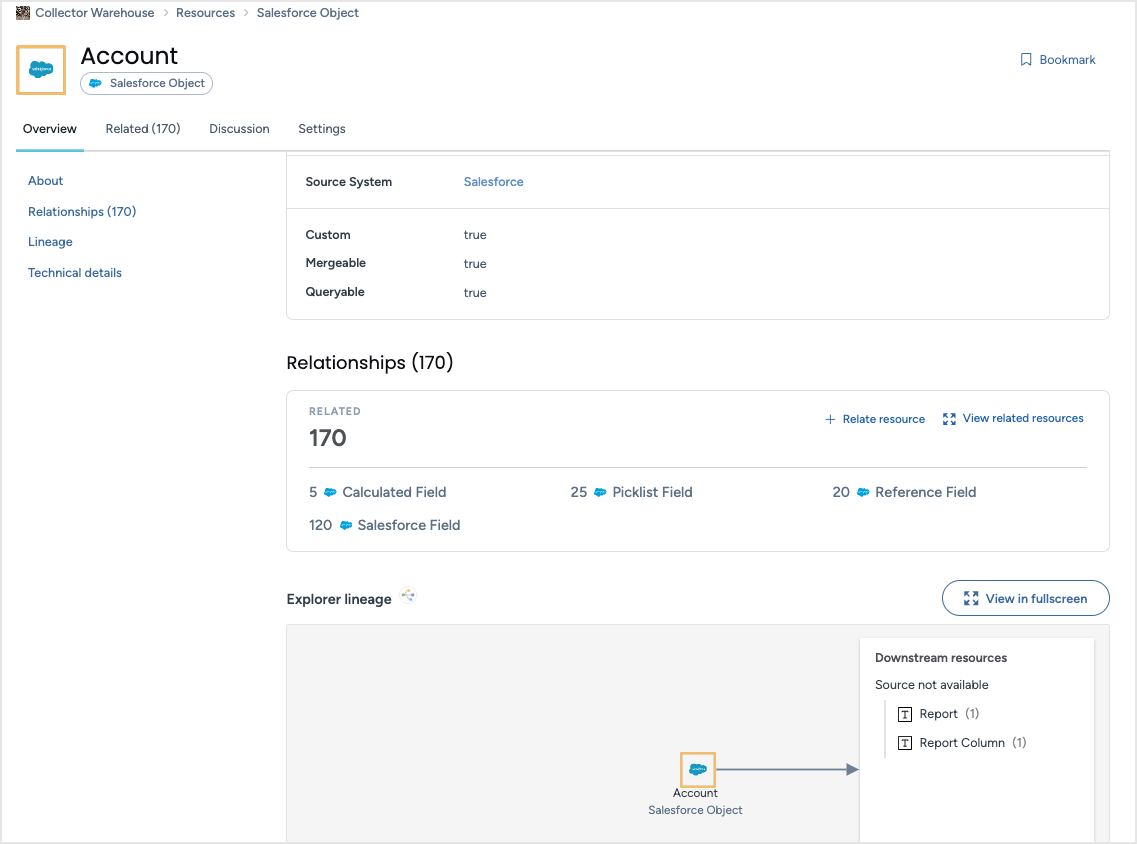About the Salesforce collector
Use this collector to harvest metadata for Salesforce Objects and Fields, Reports, and Dashboards, and make it searchable and discoverable in data.world.
Important
The Salesforce collector can be run in the Cloud or on-premise using Docker or JAR files.
Note
The latest version of the Collector is 2.316. To view the release notes for this version and all previous versions, please go here.

What is cataloged
The collector catalogs the following information.
Object | Information cataloged |
|---|---|
Object | Name, Description, Custom Object (true or false), Mergeable Object (true or false), Queryable Object (true or false) |
Field | Name, Description, Field Type, Security Classification, Compliance Group, Inline Help Text, Length, Default Value, Formula (calculated fields), Allowed Values (picklist fields) |
Summary field | Summarized object, Aggregation type, Aggregated field, Any filters on the summarization (filter field, filter operation, and filter value) |
Dashboard | Name, Type, External URL |
Report | Name, Type, Format |
Detail column | Name, Fully-Qualified Name |
Grouping column | Name, Fully-Qualified Name, Grouping level |
Aggregation column | Name, Formula |
Relationships between objects
By default, the harvested metadata includes catalog pages for the following resource types. Each catalog page has a relationship to the other related resource types. If the metadata presentation for this data source has been customized with the help of the data.world Solutions team, you may see other resource pages and relationships.
Resource page | Relationship |
|---|---|
Object | Fields |
Field | Object |
Report | Detail Column, Grouping Column, Aggregate Column |
Grouping Column | Report |
Aggregation Column | Report |
Detail Column | Report |
Lineage for Salesforce
The following lineage information is collected by the Salesforce collector.
Object | Lineage available |
|---|---|
Field | Report Column that uses data from the field |
Authentication supported
The collector supports OAuth authentication to Salesforce. Salesforce supports OAuth via connected applications.